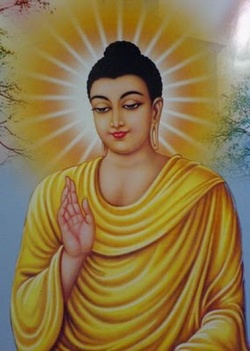Difference between revisions of "Hotoke"
Jump to navigation
Jump to search
m (Text replacement - "Category:Japanese terminology" to "{{JapaneseTerminology}}") |
|||
| Line 14: | Line 14: | ||
[[Category:Death & Rebirth]] | [[Category:Death & Rebirth]] | ||
| − | + | {{JapaneseTerminology}} | |
[[Category:Buddhist Terms]] | [[Category:Buddhist Terms]] | ||
Latest revision as of 12:59, 27 April 2014
The Japanese noun hotoke (仏?)[note 1] is a word of Buddhist origin and uncertain etymology. It has several meanings, all but a few directly linked to Buddhism. It can refer to:
- A person who has achieved satori (state of enlightenment) and has therefore become a "Buddha". (In Buddhism, the term "Buddha" in the lower case refers to a person who has become enlightened (i.e., awakened to the truth).)
- The historical Gautama Buddha himself
- The statue or the name of a Buddha
- The laws of Buddhism
- Figuratively, the performing of a Buddhist memorial service. The Eiga Monogatari for example contains a sentence in which the term is used in that sense.
- In common parlance, a dead person; his or her soul
- Figuratively, a benevolent person or someone dear to one's heart
- Hotoke can also be a person's name or a nickname. It is for example a female character in the Heike Monogatari and daimyō Kōriki Kiyonaga's nickname.
